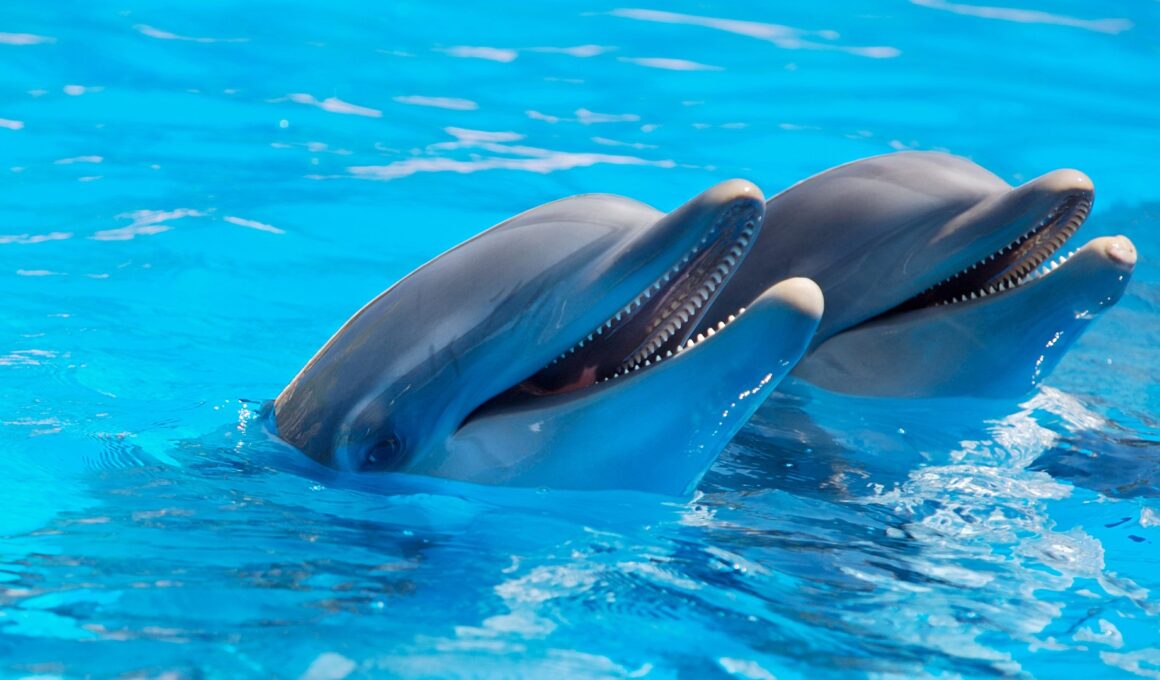One of the defining traits of humanity – other than our intelligence – is just how smart we think we are. Since the dawn of civilisation humans have believed themselves to be superior to every other life form on the planet and have acted in accordance with this world view.
Humans – Not All That?
But precisely what we base this on is not always certain. Sure, we’ve managed to build things that other animals have not. But can we categorically say that the world is better off for it? Or that another animal might not have done the same were it not for a lack of thumbs?
At one point the delicate human ego was almost knocked when we discovered that many animals – like elephants – had much larger brains than us. This was a cause for concern until we realised that larger animals needed larger brains simply to maintain their bigger bodies. Thus we began to look at the relationship between body size and brain size as a more accurate indicator of intelligence. This reassured us we were definitely more intelligent than elephants. Few, right?
Only this way of calculating intelligence didn’t always have us come out on top either! Some animals it would seem had larger brains than us even when we accounted for their body size…
Then we came up with a new excuse. Our brain was more wrinkled. Meaning that it could fit into a smaller skull and still provide us with the greatest overall surface area. Wrinkles (called sulci and gyri) also provide the brain with ‘shortcuts’ between different parts of the surface allowing signals to get there more quickly.
But we were trumped again. That’s right – there is an animal out there with brains that are comparatively larger than ours and appear more wrinkled. The culprit? The bottlenose dolphin.
Examples of Dolphin Intelligence
Bottlenose dolphins have larger brains and more wrinkles then, which makes them look alarmingly more intelligent than us. And they demonstrate this in a number of amazing ways. A study from 2006 for instance shows us that dolphins have names for themselves and others – and that they can remember these names for years (that’s more than I can say). Read more at the National Geographic.
Additionally dolphins are capable of considering abstract concepts, they can mimic our behaviour, they monitor and regulate their own behaviour, they can identify body parts, they understand human gaze, they recognise themselves in mirrors and they even use tools (a trait once thought to be uniquely human). Dolphins use marine sponges for instance to clear the floor when looking for food. Some dolphins have even been known to ‘cooperate’ with fishermen by driving schools of fish towards the shore into nets. They do this in exchange for fish. That’s right – those fishermen got hustled.
Then there are the studies that show that dolphins can not only communicate with their own languages and discuss things like demographics, locations and genders; but also learn symbolic languages created by humans. Dolphin’s also have complex cultures including groups with assigned leaders. And those leaders will sometimes meet to discuss things like territories, food rations and other matters of politics. No seriously…
While we often consider dolphins to be happy creatures (which could be considered a sign of intelligence in itself), it is a sad fact that some dolphins have been witnessed to commit suicide. This suggests not only that they have complex ‘internal lives’, but also that they have a concept of their own mortality. This is also a trait they’re known to share with elephants who mourn their dead and have also been known to be suicidal.
In one amazing study, dolphins where taught to operate a machine that contained fish by adding weights to a pulley attached to a door. Add enough weights and the pulley would lift the door up and free the fish. Quickly the dolphin’s realised that they could save time and effort by carrying multiple weights in a single trip. This shows amazing grasp of abstract concepts as well as creative thinking. In other examples they’ve been seen to not only perform tricks they’ve been taught, but even to come up with their own ‘shows’.
Dolphins also have amazing senses that we completely lack such as sonar. Bury a toy ring under some sand where they can’t see it, and they will find it with little difficulty using that sense.
So Are Dolphins Smarter Than Humans?
While I’ve been singing dolphins’ praises throughout this article, it’s time I came clean and admitted that – smart though they are – they probably still are not more intelligent than humans. While we do see them demonstrate many examples of creative thinking, of problem solving and even of complex social behaviour, these examples are still not up there with what we see in humans. We have yet to discover an example of dolphin art for instance, or to see any truly independent engineering. You could always make the argument that they’re smart in a ‘different way’, but that then becomes an entirely different conversation.
So why do they have those bigger and more folded brains? This could be due simply to the differences between humans and dolphins. While bottlenose dolphins may have a bigger surface area to their brains, the surface is nevertheless thinner which may be a result of their evolving in the ocean.
Likewise the dolphin’s larger brain might also be a result of the dolphin’s sonar capabilities – all these functions require brain ‘real estate’. The dolphin brain is completely different to ours – did you know that they ‘sleep’ by shutting down one hemisphere at a time? So really our brains and theirs are really just too different to compare. But that said, it’s important that we don’t underestimate them. In at least some ways, they may be our superiors…





What percentage of the brain does a human use compared to a dolphin?